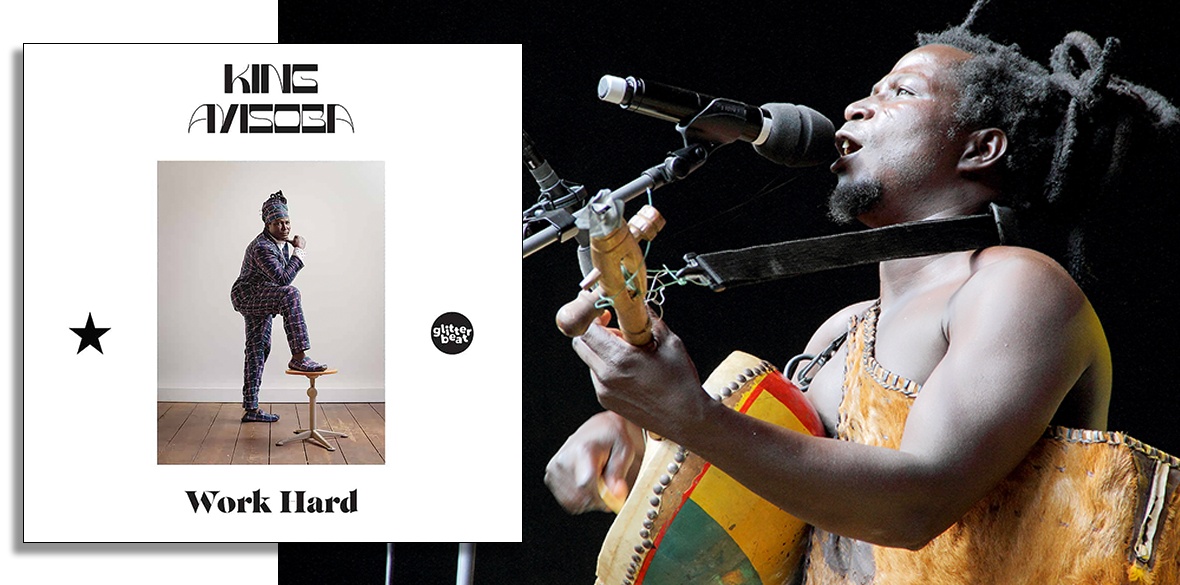This is the last article you can read this month
You can read more article this month
You can read more articles this month
Sorry your limit is up for this month
Reset on:
Please help support the Morning Star by subscribing here
IN THE 1980s, young people had formed long queues to buy cassettes of Somalian soul and funk which boomed out of taxis, shops and on the street throughout Somalia. But at the beginning of the 1990s, the clubs and bars of Mogadishu in Somalia disappeared when the city was destroyed during the civil war.
Somalia’s musicians headed into exile and many fled to London which is now home to the largest Somali diaspora in Europe.
The Dur-Dur Band Int was founded and remains in London today. During the last decade many recordings of Somalia’s funk and soul scene have been reissued, but this set The Berlin Session issued on Out Here is the first new studio recording by a group of Somalian musicians since the country’s golden era.
The Berlin Session was cut in 2019 with singers Xabiib Sharaabi (who lives in Sweden), Cabdinuur Alaale (from Djibouti) and London-based Fadumina Hilowle and brings back the sounds of soul and funk from Somalia’s heyday.
Somalian music has influences from Southeast Asia, India, Europe and the Arabian Peninsula and there is a reggae influence which Somalian musicians deny, saying: “It’s Dhaanto! It’s our rhythm — they took it from us!” Originating from the Ogaden region (in neighbouring Ethiopia’s borders), Dhaanto, some say, is an imitation of the swaying gait of the camel.
In recent years listeners outside the Somali community have discovered Somalian music on labels such as Awesome Tapes From Africa, Analog Africa and Ostinato Records.
Albert Apoozore aka King Ayisoba hails from Kalaga, in the Upper East Region of Ghana. Born in 1976 he learned how to play the kologo (a traditional two-stringed guitar similar to lute or calabash, covered in goat skins) from his grandfather.
A child prodigy, he sang and played in pito bars and festivals, before touring and recording to great acclaim.
His new album on Glitterbeat, Work Hard is a home-grown effort as the album’s recording and production was disrupted by the pandemic.
The bulk of the set was cut at Francis Ayamga’s hilltop studio in Bongo, a town bordering Burkina Faso. West African popular music is often unashamedly political and unafraid to tackle social difficulties, the legacy of cultural programmes initiated by Nkrumah in Ghana and Sankara in Burkina Faso, and Ayisoba belongs to this revolutionary tradition.
The nine tracks are fierce to say the least, and Ayisoba takes no prisoners.
He uses a range of techniques to get his message across including using call and response, heavy brass and powerful political themes, all to the fore on Be Together and Good Things God Knows which admonish political leaders who have been corrupted (he calls them “wicked leaders”) — a central message of the album.
Ayisoba even recorded one track in a converted bulb shed, the glorious People Talk Too Much.
This set is perhaps Ayisoba’s most consistent release to date. He is prepared to tackle matters head on, such as on Bossi Labome which addresses the unequal position of women and how they are treated, often punished when they commit adultery while men get away with it, and date other married women.
Uncompromising stuff.









